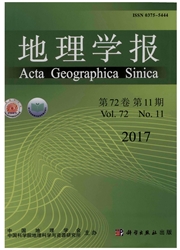

 中文摘要:
中文摘要:
地方感是人文主义地理学“人-地”关系研究中的重要内容.旅游是人们感知和认识环境的重要途径和方式,旅游者地方感是旅游者与旅游地环境相互作用的结果.通过构建旅游者地方感模型,以九寨沟为案例研究发现,①九寨沟旅游者的地方感在自然风景维度、社会人文维度、旅游功能维度和情感依恋维度等四个维度上存在一定差异:②九寨沟的自然风景与环境得到了旅游者较高的感知评价和普遍认同,是旅游者对九寨沟产生情感依恋的主要因素:③旅游者对九寨沟的社会人文环境的感知评价相对较低,并影响到对九寨沟旅游环境与功能的感知评价;④旅游者赋予九寨沟更多的是自然观光的意义和审美价值,九寨沟蕴涵的民俗文化体验的意义和历史价值并未能被旅游者所充分感知和认识,“藏族村寨”的地方特质没有得到旅游者的足够认同:⑤不同类型旅游者之间的感知评价差异集中在九寨沟的藏族风情、地方文化、旅游服务、游览秩序和旅游氛围等方面.旅游者地方感研究为自然资源和旅游地规划与管理提供了依据,具有一定的现实指导和借鉴意义.
 英文摘要:
英文摘要:
Sense of place is an important research field of humanistic geography in man-land relationship research. Travel and sightseeing is a significant way of perceiving and understanding environments and tourist's sense of place is the outcome of interaction between tourist and destination environment. By constructing model of tourist's sense of place, a case study of Jiuzhaigou shows that (1) differences exist among four dimensions of tourist's sense of place, namely natural scenery, social cultural setting, tourism function, and affectional attachment; (2) natural scenery of Jiuzhaigou is valued unanimously by tourists, which is the primary cause of tourists' affectional attachment to Jiuzhaigou; (3) social cultural settings of Jiuzhaigou is low-valued relatively, which affects tourists' experiential evaluation of tourism environment and function; (4) tourists endow Jiuzhaigou with more meanings of natural scenery sightseeing and aesthetic value than meanings of folk-custom culture experience and historical value, the place particularity of "Tibetan village" is not identified enough by tourists; and (5) significant differences of perception and experiential evaluation occur in Tibetan social customs, local culture, tourism service, sightseeing order and atmosphere. Its implication in planning and management of natural resources and tourist destination is also discussed.
 同期刊论文项目
同期刊论文项目
 同项目期刊论文
同项目期刊论文
 期刊信息
期刊信息
